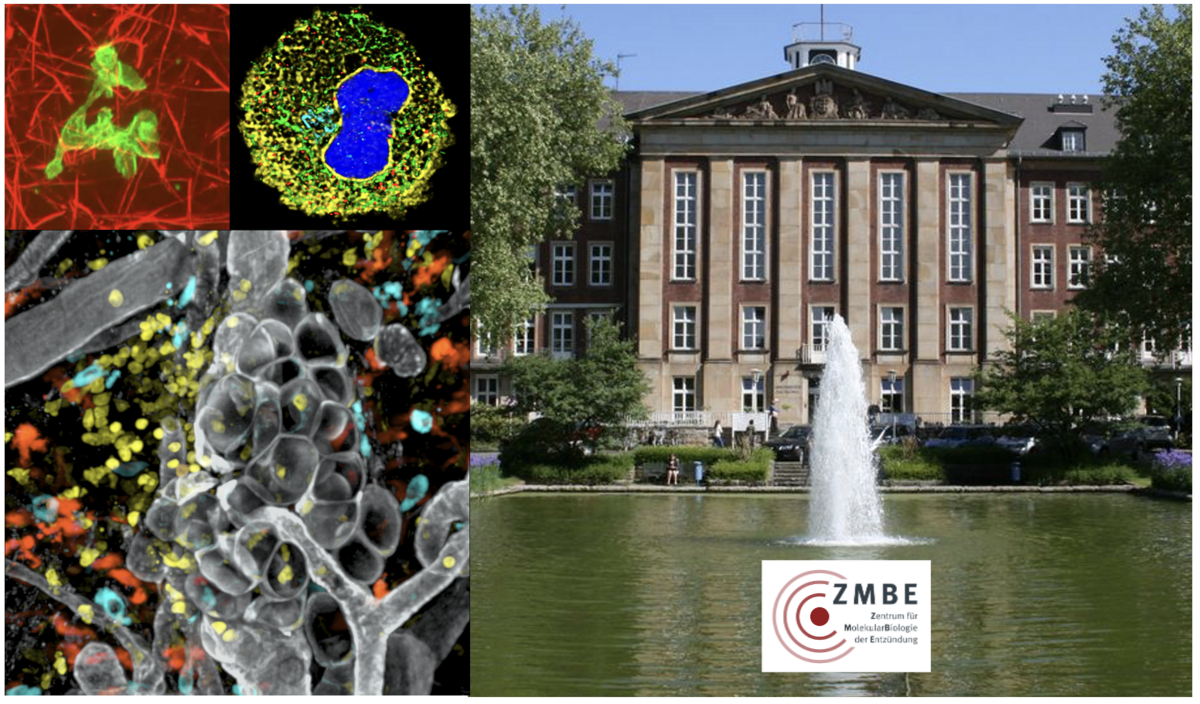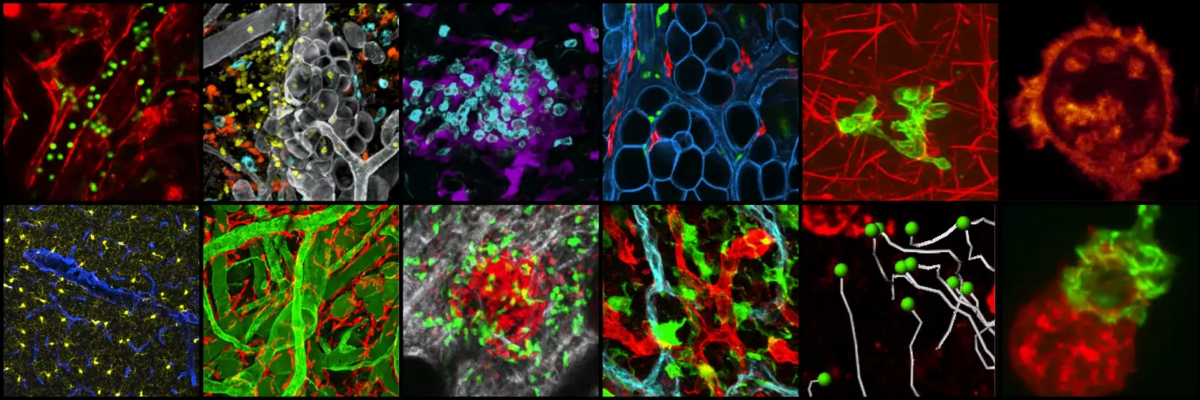

We investigate the mechanisms that shape single cell and population dynamics of immune cells in the complexity of inflamed and infected tissues. By using a broad range of microscopy and imaging techniques, we explore the strategies that immune cells have evolved to move and exert their functions individually or in concert with other cells in order to achieve together an optimal immune response.
In particular, we are interested in how immune cells coordinate and integrate fundamental cell biological and biochemical processes (directional sensing, cytoskeletal regulation, cell adhesion, cell migration, phagocytosis, cell death, cell survival, cell-cell communication, metabolism) that together shape the dynamics of an immune response in complex tissue environments.
Mission and Goals
With a special focus on cells of the innate immune response, our research seeks to find a conceptual framework how these immune cells integrate the plethora of signals arising in inflammatory environments and how they coordinate their dynamic behavior with other tissue-resident cells in the context of inflammatory and infectious diseases. Moreover, we aim at understanding the remarkable plasticity that many immune cells have evolved on a single cell and population level, allowing them to adapt their dynamic responses to rapidly changing inflammatory environments. An improved understanding of the underlying mechanisms promises the tailoring of therapeutic strategies to modulate immune responses.
Approach
We follow an interdisciplinary research approach at the interface of immunology, tissue physiology, basic cell biology and biochemistry to gain the deepest possible knowledge on innate immune cell dynamics under physiologically relevant conditions. Visualization of innate immune responses in inflamed and infected tissues by intravital microscopy is our starting point for understanding leukocyte dynamics in their physiological tissue environment. However, these intravital studies often do not allow dissecting the cell biology and molecular details underlying dynamic processes. To overcome these limitations, we complement our studies with mouse genetics and innovative, often custom-built in vitro models that closely mimic the physiological situation.
The contact address of the Institute of Medical Biochemistry is displayed below.
Prof. Dr. Tim Lämmermann
Institut für Medizinische Biochemie
ZMBE
Von-Esmarch-Straße 56
D-48149 Münster
Email: laemmermann at uni-muenster.de
Phone: +49 251 83-56722
Office:
Katja Zeyer
Phone +49 251 83-52118 / Fax -56748
e-mail: kzeyer at uni-muenster.de

See also our News from the Institute here.


